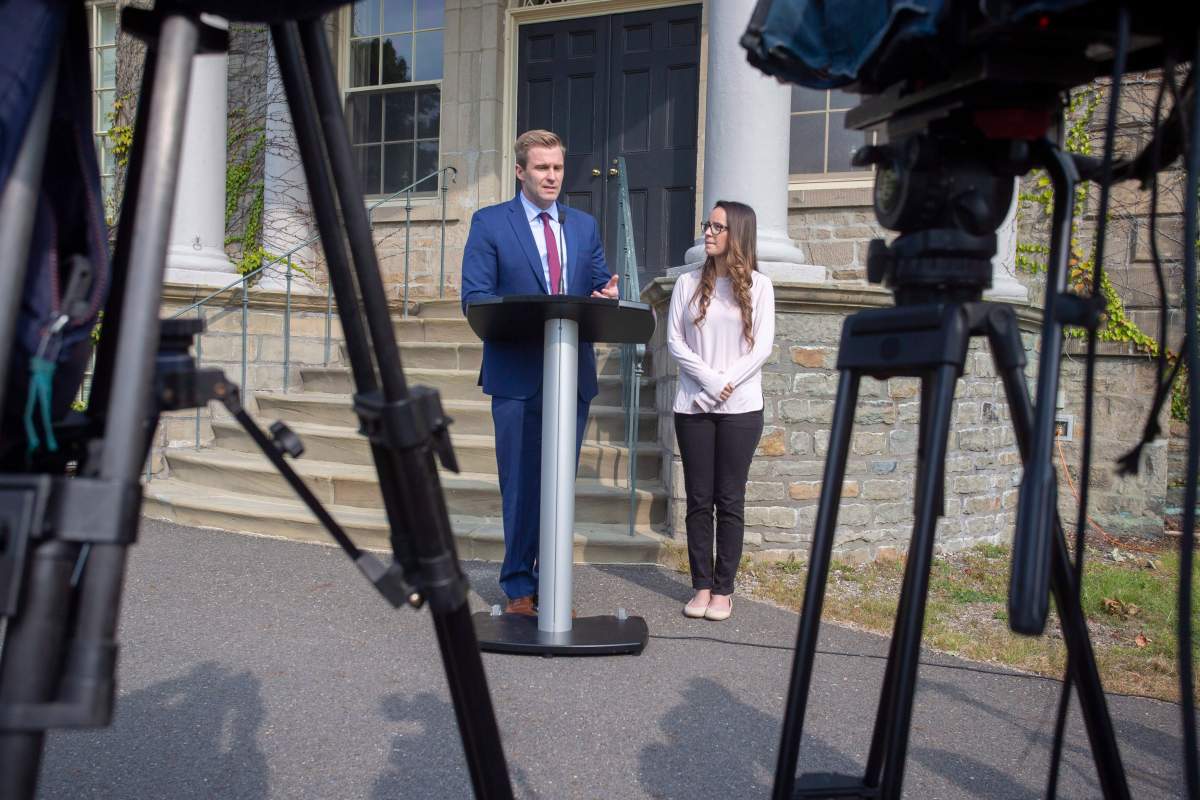It is the most corrosive wedge issue in Canada’s only officially bilingual province: language.

Largely dormant for more than 20 years, the schism between French- and English-speaking New Brunswickers reappeared this week when voters cast their ballots along linguistic lines, creating a starkly contrasting electoral map.
Monday’s vote saw the election of three members of the upstart People’s Alliance, marking a breakthrough for a populist party that campaigned on a “common sense” platform that includes pledges that are wildly unpopular with French-speaking voters.
“Maybe it’s common sense for them, but it’s clear from the francophone perspective that francophones will never vote for this party,” says Roger Ouellette, a political science professor at the Universite de Moncton.
“(Francophones) feel this party is against their fundamental linguistic rights.”
READ MORE: Kris Austin says he’s open to working with any party to make N.B. minority government work
However, leader Kris Austin – a former church minister – has repeatedly insisted the right-leaning party isn’t opposed to bilingualism, which is protected as a Constitutional right.
“It is very frustrating for some organizations and other parties to be putting out this fear mongering and this idea that we are somehow anti-French,” he said in an interview Wednesday.
“We respect the rights of both francophone and anglophone citizens to receive government services in their language of choice. What we want to do is make sure that it works in the best interest for all New Brunswickers … The money we’re spending on duality can be invested in frontline services while still maintaining the rights of both linguistic communities.”
Still, there is no shortage of French-speaking critics who have taken aim at Austin’s promises to eliminate duality in government services – including school buses and health care – and do away with the office of the Official Languages Commissioner.

Get breaking National news
With the Progressive Conservatives and incumbent Liberals each failing to secure a majority of the seats in Monday’s cliffhanger – the Tories won 22 seats and the Liberals 21 – Austin now shares the balance of power in the 49-seat legislature with the Green party, which increased its seat count from one to three.
That means Austin’s once-obscure party – and its potentially incendiary approach to language – is getting a lot more attention than it used to.
However, it would be a stretch to suggest support for the People’s Alliance has been driven solely by an anti-French bias among anglophones, says Herb Emery, a professor at the University of New Brunswick in Fredericton.
Emery says many of the New Brunswickers who voted for Austin’s party were expressing their frustration with the Progressive Conservatives and the incumbent Liberals, which have presided over a two-party state for almost 100 years.
“It’s a protest vote,” he said. “People just didn’t know where to go …There was a feeling emerging that the two main parties weren’t speaking about the important issues: the deficit crisis, crumbling infrastructure, the lack of job opportunities, outmigration.”
READ MORE: All our New Brunswick election 2018 coverage
To be sure, both the Tories and the Liberals saw their electoral support drop during the course of the 32-day campaign.
And that discontent has prompted some voters to lash out at the status quo and, in some cases, their neighbours, Emery said.
“When you have an economy that is struggling … you’re always looking for a scapegoat,” he says. “It could be newcomers, refugees. Here, they pick on the linguistic divide.”
Ouellette says the renewed schism between French and English is reflected in voting patterns.
A swath of red, Liberal seats can be seen across the province’s northern and eastern reaches, showing how closely aligned the party is with francophone voters. In the centre of the province and to the south, it’s all Tory blue, with a few hints of Alliance purple – areas dominated by the majority anglophone population.
Ouellette says the map wasn’t all that different in 1991, when the anti-bilingualism Confederation of Regions (COR) party won eight seats, forming the official opposition.
READ MORE: No, we don’t know who will form New Brunswick’s government — but here are other things we do
“It’s a return to this kind of party,” says Ouellette, adding that francophone voters avoided voting for the Progressive Conservatives on Monday because party leader Blaine Higgs doesn’t speak much French and was once a member of the COR party.
On Wednesday, Austin said he was open to formally supporting a Progressive Conservative government, though he wouldn’t say if there was a policy the Tories had to adopt to secure his support.
Such a coalition might seem like a natural fit, but the Tories were made aware Wednesday that they could be swallowing a poison pill.
Robert Gauvin, the only francophone in the new Conservative caucus, said he won’t support his own party if it adopts the language policies of the People’s Alliance.
“For me, it’s clear (Higgs’s) longevity as premier will depend on the way he treats the Acadians,” Gauvin told Brunswick News. “My job is to ensure that our rights are respected. We can’t go back on what we’ve earned.”
For his part, Higgs maintains Gauvin is “fully onside.”














Comments